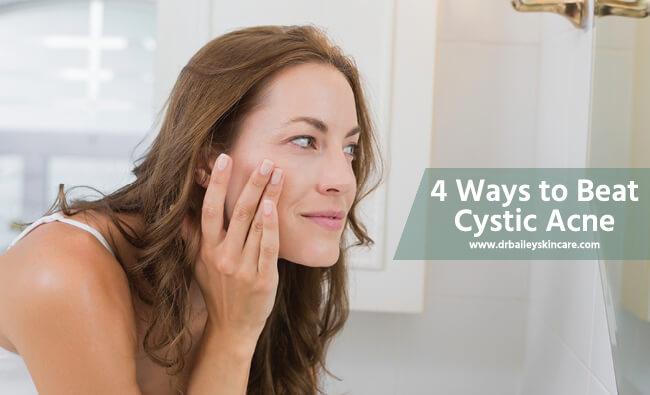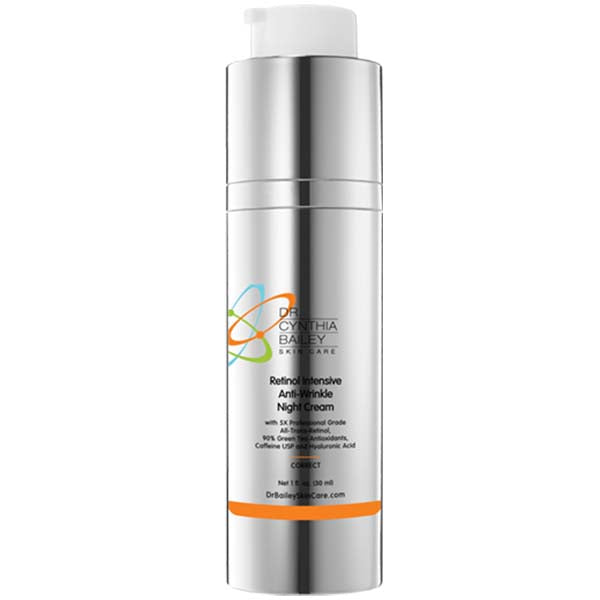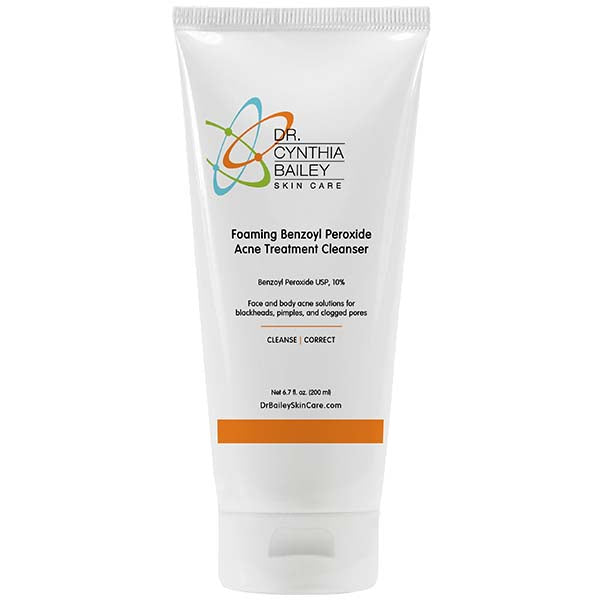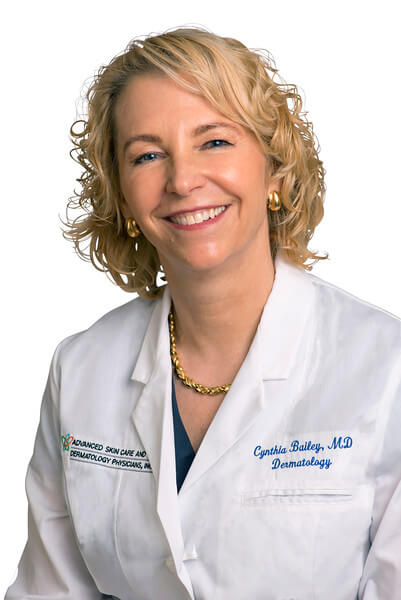4 Ways to Beat Cystic Acne

How do you beat cystic acne? It is particularly troublesome form of acne that leads to deep, painful pimples. The large cystic pimples have a tendency to heal with scaring or hyperpigmentation. Often cystic acne lesions don't come to the skin surface. Instead they fester deep under the skin and may merge with adjacent pores. Cystic acne is a tough skin problem.
It’s rare to meet anyone who hasn’t experienced one of these epic types of pimples. Unfortunately, there are many people that suffer with constant breakouts of cysts. We call it cystic acne. The biggest problem with this type of acne is that it can lead to devastating scarring. As a dermatologist, I am dedicated to preventing this from happening.
Aggressive acne often requires aggressive measures including complete topical skin care treatment medicines and even systemic treatment with oral medication. Here I will discuss skin care to help treat and prevent acne. When skin care alone is not effective, it is time to see a dermatologist for internal treatment too.
Beat Cystic Acne
Beat cystic acne with topical acne skin care treatment available without a prescription.
Cystic acne is a tough skin problem that I treat with multiple medicines and acne fighting ingredients. In mild cases of cystic acne topical acne products may be sufficient to control acne breakouts.
 In my practice, everyone who has acne is on some sort of retinoid. Retinoids can be prescription strength, or they can come in a milder form called retinol. Retinoids are family of vitamin A. Retinoids help to keep pores unclogged, they fight pigment problems and help soften the appearance of acne scars. Retinol has age fighting benefits which means it is an ingredient that I recommend throughout life (except when pregnant or lactating).
In my practice, everyone who has acne is on some sort of retinoid. Retinoids can be prescription strength, or they can come in a milder form called retinol. Retinoids are family of vitamin A. Retinoids help to keep pores unclogged, they fight pigment problems and help soften the appearance of acne scars. Retinol has age fighting benefits which means it is an ingredient that I recommend throughout life (except when pregnant or lactating).
I also use benzoyl peroxide, which is a powerful acne-fighting ingredient for cystic acne. Benzoyl peroxide is the best topical medicine to kill the acne causing bacteria called P. acnes/C. acnes. It also helps unclog pores. Benzoyl peroxide can be used as a cleanser or as a leave-on topical product.
 A great benzoyl peroxide cleanser for people with acne is Foaming Benzoyl Peroxide Acne Treatment Cleanser. It's an easy product that cleans skin and medicates with a full 10% benzoyl peroxide to fight acne all in one. I recommend using the benzoyl peroxide in the morning and waiting until your evening routine to use a non-benzoyl peroxide cleanser at night with the Retinol Cream. This is because benzoyl peroxide and retinol work best when they are not directly combined.
A great benzoyl peroxide cleanser for people with acne is Foaming Benzoyl Peroxide Acne Treatment Cleanser. It's an easy product that cleans skin and medicates with a full 10% benzoyl peroxide to fight acne all in one. I recommend using the benzoyl peroxide in the morning and waiting until your evening routine to use a non-benzoyl peroxide cleanser at night with the Retinol Cream. This is because benzoyl peroxide and retinol work best when they are not directly combined.
 Understand that a clogged pore is the first step in a cascade of events that leads to a pimple. Bacteria then flourish in clogged pores. Tackling both clogged pores/blackheads and bacteria is the best treatment approach. - Dermatologist Dr. Cynthia Bailey
Understand that a clogged pore is the first step in a cascade of events that leads to a pimple. Bacteria then flourish in clogged pores. Tackling both clogged pores/blackheads and bacteria is the best treatment approach. - Dermatologist Dr. Cynthia Bailey
My top choice for topical treatment of cystic acne is to combine benzoyl peroxide with other medicated acne fighting ingredients such as salicylic acid.
This is the basis of my Ultimate Acne Solutions Kit. I made this kit to treat acne with every non-prescription medicine possible. It combines salicylic acid, which penetrates better than any other ingredient into oily pores to fight blackheads, with benzoyl peroxide and glycolic acid.
AM: I recommend cleansing acne prone skin with the Foaming Acne Treatment Cleanser, followed by application of the Benzoyl Peroxide 2.5% Acne Treatment Lotion. Always apply moisturizer to prevent dryness and protect skin barrier. My Daily Moisturizing Face Cream is ideal for acne-prone complexions.
PM: At night, I typically have my cystic acne patients cleanse with the Foaming Acne Treatment Cleanser then apply Retinol Night Cream followed by Daily Moisturizing Face Cream. Retinoids are important to fight acne and acne scarring.
This medicated skin care treatment is the strongest acne treatment available without a prescription.
What oral medicines do dermatologists use to treat cystic acne?
Oral antibiotic treatment for cystic acne
Antibiotics work to kill bacteria involved in acne (called Propionibacterium acnes). Antibiotics can also work to decrease the inflammation in the skin that make acne worse. Not all antibiotics work to treat acne and dermatologist's use antibiotics that have shown effectiveness in treating acne. Some people with cystic acne may not respond sufficiently to antibiotic treatment of their acne. Also, the acne causing bacteria can become resistant to antibiotics. Importantly, antibiotics will alter the good probiotic germs in your body and on your skin. We are just beginning to understand the ramifications of this to your overall health.
Historically, relying on antibiotic treatment of acne has often meant being on antibiotics for many months or even longer. Now, we want to treat your acne quickly and effectively with antibiotics so that you can get on and off of them quickly. The best way to approach antibiotics is to see a dermatologist to help you choose the precise antibiotic medicine for your acne combined with a thorough topical treatment. This will help you get the fastest results and minimize the amount of time you are on antibiotics.
Spironolactone treatment for cystic acne
Spironolactone is a medication that has anti-testosterone effects that can be helpful in treating women with hormonal acne. Testosterone drives the production of sebum and makes acne worse. Hormonal acne has a classic appearance that includes cystic acne that flares with the menstrual cycle and primarily involves the jawline and chin.
Hormonal acne can happen to any woman after puberty. It is more common in women who have polycystic ovarian syndrome (PCOS), a condition in which women have enlarged ovaries, abnormal menstrual cycles, excess hair growth and a body metabolism prone to obesity.
The medication spironolactone has other uses such as treating heart failure and liver failure by reducing excess body fluid. Treating acne with spironolactone requires experience. When used in the right way to treat acne, this medication can be a safe and effective treatment for acne.
Isotretinoin treatment for cystic acne (Accutane)
This medicine is part of the vitamin A family of compounds called retinoids. It is powerful for the treatment of severe cystic acne and the most effective treatment for cystic acne that dermatologists have. Isotretinoin attacks acne at all levels including stopping blackhead formation, reducing oil production and shrinking oil glands. Isotretinoin is so effective that it can even "cure" acne for good. Unfortunately, it also has some significant side effects.
Isotretinoin is such a powerful medication that it can cause birth defects if a pregnant woman is exposed to it. This is why isotretinoin is tightly regulated. It can also cause liver and blood lipid abnormalities that can be dangerous. I feel that treatment of acne with isotretinoin should only be done by someone that is highly experienced in using this medicine. The goal is to clear acne for good without side effects.
The good news is that there are excellent treatments for cystic acne. It is a tough skin problem but we have good treatment options. If you are not able to heal your cystic acne with medicated skin care products then it is time to see an experienced dermatologist for help.
Reference:
McLaughlin J, Watterson S, Layton AM, Bjourson AJ, Barnard E, McDowell A. Propionibacterium acnes and Acne Vulgaris: New Insights from the Integration of Population Genetic, Multi-Omic, Biochemical and Host-Microbe Studies. Microorganisms. 2019;7(5):128. Published 2019 May 13. doi:10.3390/microorganisms7050128
Blaskovich, M.A.T., Elliott, A.G., Kavanagh, A.M. et al. In vitro Antimicrobial Activity of Acne Drugs Against Skin-Associated Bacteria. Sci Rep 9, 14658 (2019). https://doi.org/10.1038/s41598-019-50746-4
Disclaim Medical Advice: The information in the Dr. Bailey Skin Care web site, and related links, articles, newsletters and blogs, is provided as general information for educational and advertising purposes only. The information is the opinion of Dr. Cynthia Bailey, or other indicated authors. Consult your physician or health care provider for any specific medical conditions or concerns you may have. (This also applies to Dr. Bailey’s patients in her medical practice in Sebastopol - the information is not a substitute for, or an extension of, the medical care she provides her patients.) Never disregard professional medical advice or delay seeking it because of something you have read here. Use the information and products referred to in this information at your own risk. Use of the Dr. Bailey Skin Care web site, and related links, articles, newsletters and blogs indicates your agreement with these statements and the Terms and Conditions of DrBaileySkinCare.com. If you do not agree to all of these Terms and Conditions of use, please do not use this site.


